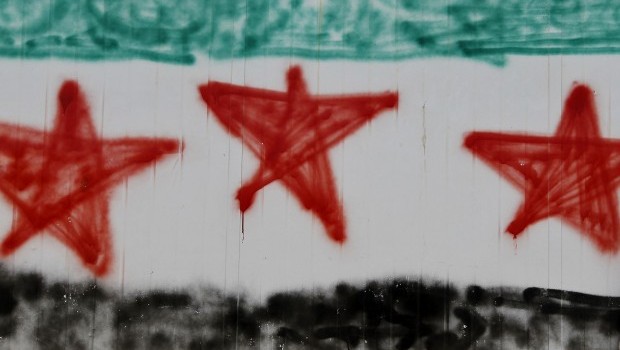In press statements, Brotherhood controller-general Riyad Al-Shaqfah asserted that he plans to return to his country and resume his political activities. He said that his group recently decided to revive its organizational bodies inside Syria and asked its followers to begin opening offices for the Brotherhood in the areas under the control of the rebels.
Al-Shaqfah said: “The time now is for the revolution, not for ideology. Many groups are currently present in Syria, and their presence there prompted us to reorganize ourselves and promote a more moderate line of Islamic thinking at a time when extremism is on the rise.”
The Brotherhood has been absent from politics inside Syria since 1980, when its leaders and many members fled the country in response to a law that provided for the execution of any person belonging to the group.
The Muslim Brotherhood returned to the political arena in Syria about 18 months after the outbreak of the Syrian revolution, and its leaders contributed to the founding of the Syrian National Council.
The Brotherhood is the main party in the council, and nearly a quarter of the Syrian National Council’s 310 members are affiliated with the group. Some Syrian politicians believe that this level of representation exceeds the group’s actual size on the ground.
Brotherhood spokesman Zuhayn Salim told Asharq Al-Awsat that the group’s return to Syria is a natural step, saying: “The Brotherhood’s leaders must be present in their country, not abroad, especially because the group has grassroots and a broad intellectual trend inside the country. We are returning to our homes…. The [Assad] regime is not a concern.”
He added: “The decision to open Brotherhood offices in Syria was taken by the group’s leadership a few months ago; now, the decision will be carried out. These offices will work to achieve coordination between the Brotherhood’s supporters, reorganize the group’s affairs, and provide relief aid for the Syrian people, who are suffering at both the humanitarian and economic levels.”
The spokesman stressed that rumors that the group intends to withdraw its support for Syrian prime minister-designate Ghassan Hitto are untrue. He said: “We continue to support him in his efforts to form a government of technocrats that will represent all Syrians and provide them with relief aid and humanitarian services.”
Hitto has denied that the Brotherhood set any conditions for the formation of a transitional government or asked for quotas in it.
The Brotherhood is considered the most organized party among the Syrian opposition forces. The Ba’ath Party sought to weaken the group when it came to power in 1963, and in 1964 issued a decision to ban the group. At the time, armed men belonging to the group assassinated government officials and carried out bombings against government buildings and Ba’ath Party offices.
A breakaway group, the Combatant Vanguard, was formed in 1979 to engage in armed action against the regime. It notably killed 83 Alawite officer cadets at the Military Artillery School in Aleppo in 1979. Following these events, the late President Hafiz Al-Assad issued Law No. 49 of 1980, which banned the Brotherhood and imposed the death penalty for membership.
Violence between the two sides continued until the regime launched a campaign to crush the Combatant Vanguard in a major military operation that targeted the city of Hama in February 1982. Some 10,000 to 25,000 residents of the city were killed in that operation.

